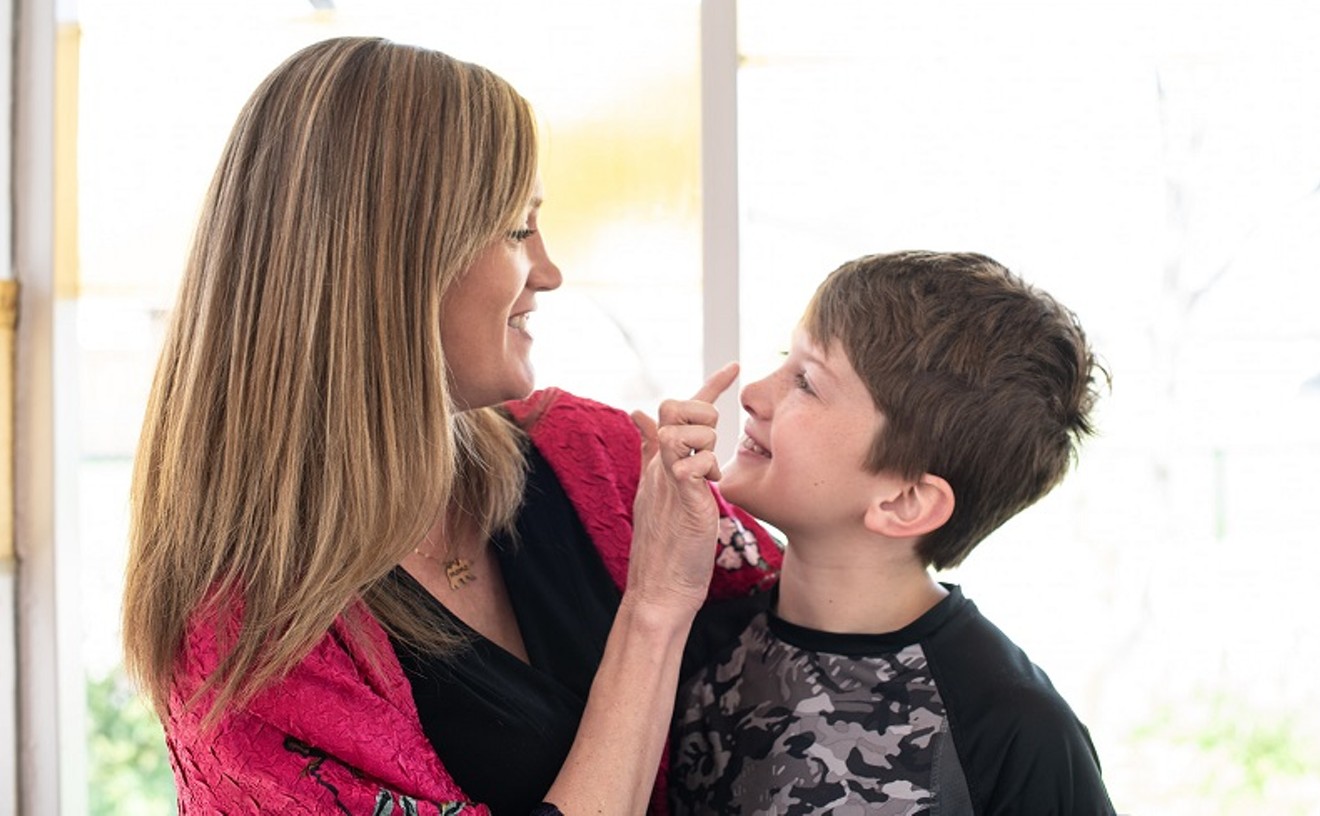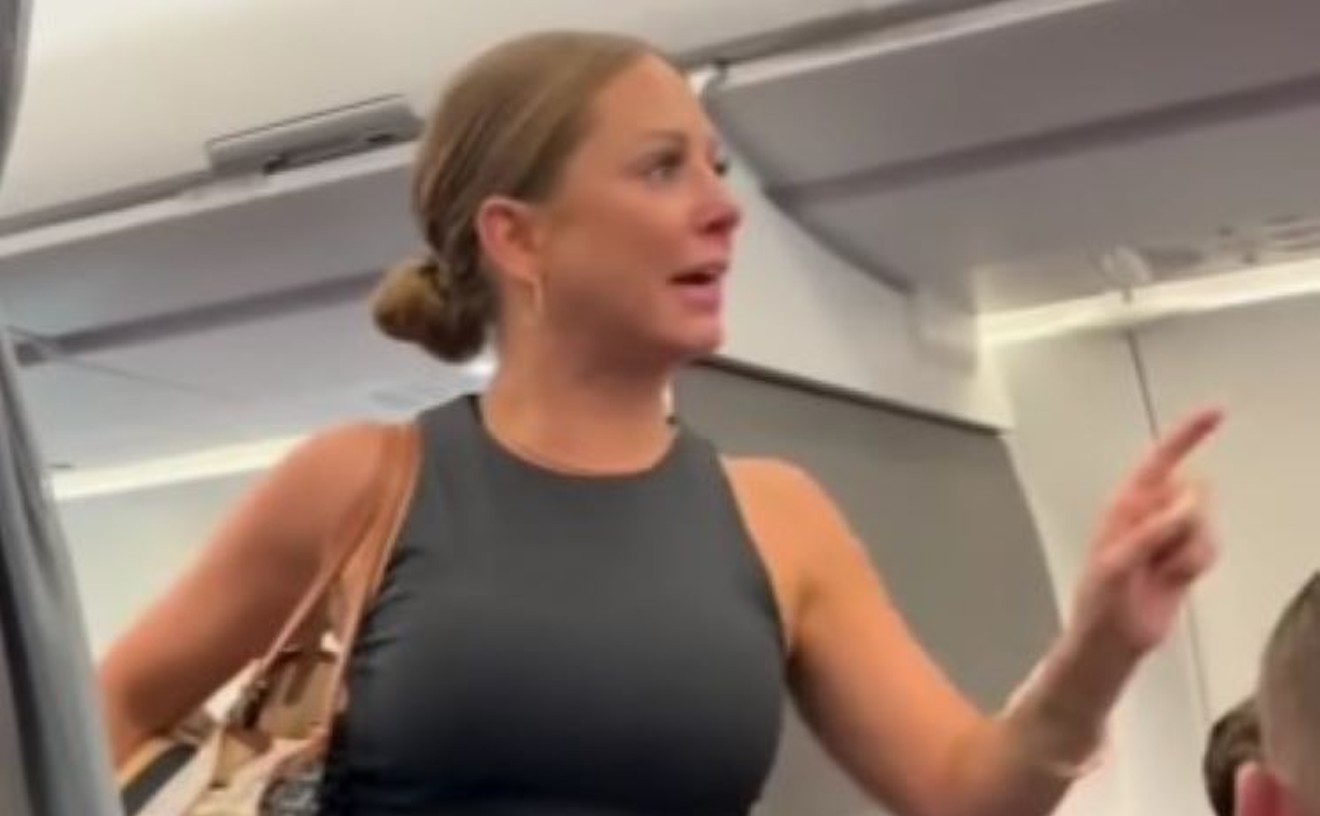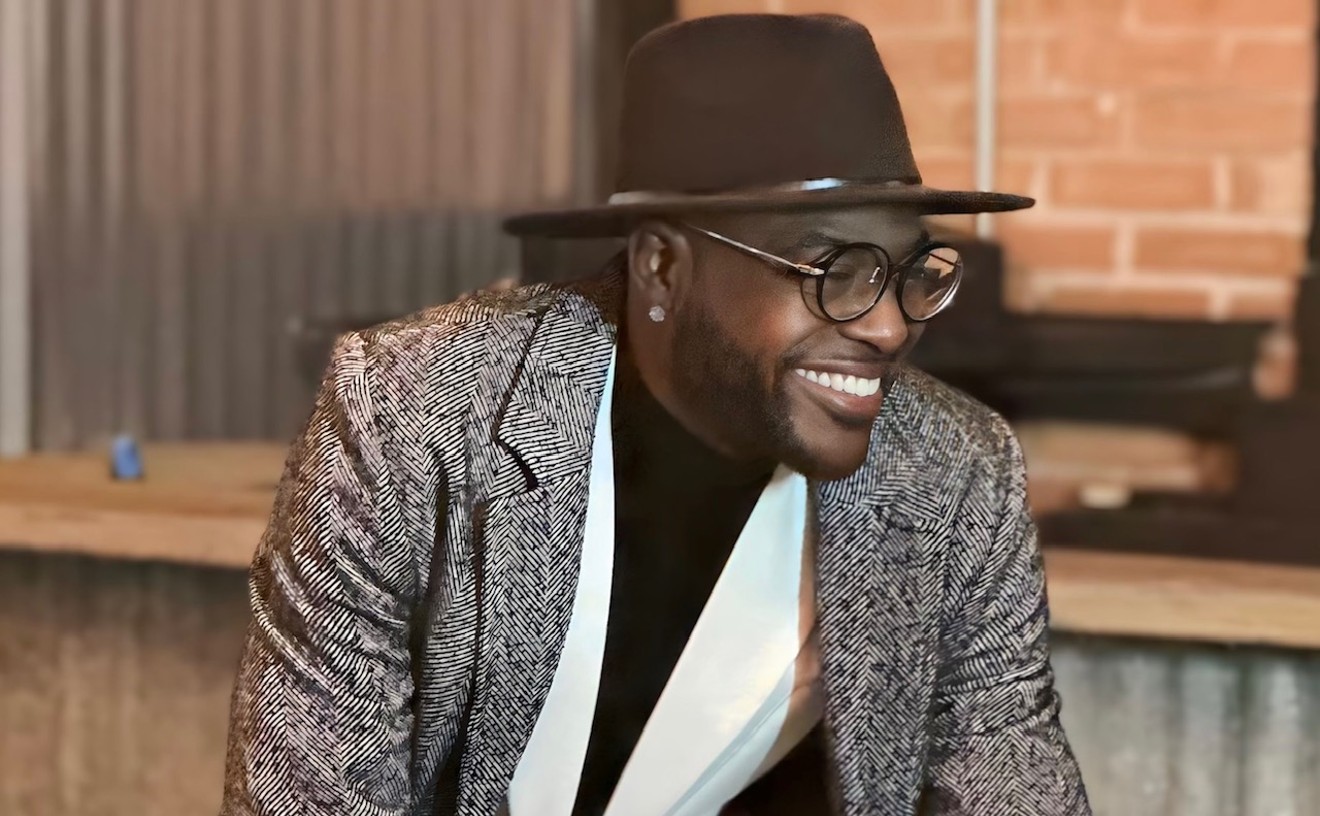It does feel weird to applaud after John Wilkes Booth sings about shooting President Lincoln in the opening scene of Assassins, the 1990 Stephen Sondheim/John Weidman musical now playing at Theatre Three. But damn, actor Gregory Lush is so matinee-idol handsome as Booth, and his performance of "The Ballad of Booth" (with a charming Christopher J. Deaton as The Balladeer) is so powerful, clapping has to happen.
It's a tough show — to produce and to watch. A musical comedy about presidential assassinations? Not what you think of as feel-good entertainment. But it is. It's also feel-smart entertainment. Sondheim's bouncy tunes and witty lyrics, and Weidman's thoughtful book create a brilliant, satirical oratorio (as some critics have dubbed it) lambasting America's dual love affairs with fame and violence.
Bruce Coleman directs this show for Theatre Three, doing much better than he has with previous musicals there (his Pippin is unforgettable for all the wrong reasons). Assassins features an ensemble of strong singer/actors who zero in on the personality quirks of the real-life people they play. And what a bunch of freaks these characters are. By this show's comparison to other presidential assassins and the would-be killers who failed, John Wilkes Booth seems downright rational. At least he can articulate his reasons for carrying out his evil deed, singing, "What I did was kill the man who killed my country." Booth wants to be remembered as a hero who brought down a tyrant. His song is his dying manifesto. Then again, he might have done it because he was upset by bad reviews of his acting. (He returns later in the show to talk a reluctant Lee Harvey Oswald into joining the ranks.)
Fame and glory are big factors among the nine men and women who wanted to end the lives of American presidents. Assassins tells their stories in vignettes that are mostly high comedy set to lighthearted songs reflecting American musical styles that range from old-fashioned marches and cakewalks to haunting pop ballads. The setting (by designer David Walsh) finds the killers wandering into a dreamlike carnival sideshow, where they pick up their loaded weapons from the leering Proprietor (Jason Kane, singing beautifully). Bullets that hit the bull's-eye guarantee the shooter the prize of becoming more than a minor footnote in history.
Which is about all many of them turned out to be anyway. The bearded Charles Guiteau, a peripatetic author and inventor who killed President Garfield, is played with unnerving good humor and fine singing by Paul Taylor, smiling even as he ascends the scaffold to his hanging. Loony Samuel Byck dreamed of flying a 747 into Nixon's White House. His two monologues, delivered with graveled intensity by Terry Dobson, have him dressed in a Santa suit as he dictates his bizarre final thoughts into a tape recorder.
An especially wise bit of casting puts beloved Dallas comedienne Marisa Diotalevi into the part of frumpy, fumbling housewife Sara Jane Moore, who wanted to shoot Gerald Ford but kept dropping her pistol out of her handbag. When she meets tweaky little Lynette "Squeaky" Fromme (Daron Cockerell), who also tried and failed to shoot Ford, and they discover a mutual connection to Charlie Manson, they squeal like long-lost sorority sisters. So funny.
Just as some of the real-life assassins were less accurate than others, so some of the actors in this production just miss hitting the mark. As McKinley's killer, the anarchist Leon Frank Czolgosz, Bryan Lewis is so over-tense he almost bursts through the seams of his worn-out suit. Sergio Antonio Garcia, playing Giuseppe Zangara, who tried to shoot FDR, uses an impenetrable Italian accent. Aaron White, as Reagan shooter John Hinckley Jr., looks like him but adopts such a flat affect he nearly disappears against the larger performances around him. White does have a nice moment in the show's best number, the lyrically romantic "Unworthy of Your Love" duet with Cockerell's Squeaky Fromme.
Tawdry weirdness like that sets Assassins apart from the cool sophistication of other Sondheim shows. These are taboos they're singing about. This is death they're dancing to. When you think it can't go darker, it goes darker. But always with a wink from the composer that lets us in on the joke.
"Everybody's got the right to be happy," says one of the reprised tunes in Assassins. "Don't stay mad, life's not as bad as it seems. If you keep your goal in sight, you can climb to any height. Everybody's got the right to their dreams." There they are, America's favorite buzzwords. Putting them into the mouths of murderers is a truly devilish touch.
The shorter second act leads to the moment Lee Harvey Oswald (played with a nervous squint by Sam Swanson) aims that Mannlicher-Carcano out the Book Depository window on November 22, 1963. As this show tells it, he wasn't intending to shoot JFK and he really did have curtain rods in that package. But Booth appeared and made the case for assassination. "Move your little finger," sings the chorus to Oswald, "and you can change the world." Bang, bang.
Assassins' other chilling song is "Another National Anthem," a march that could be the rallying cry for the Tea Party: There's another national anthem, folks/For those who never win/For the suckers, for the pikers/For the ones who might have been. Having the killers and the chorus sing it while pointing guns directly at the audience — a bit obvious but certainly an attention getter.










